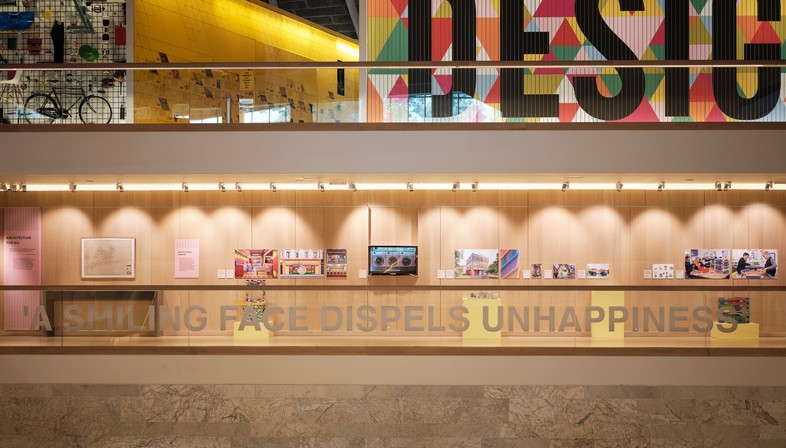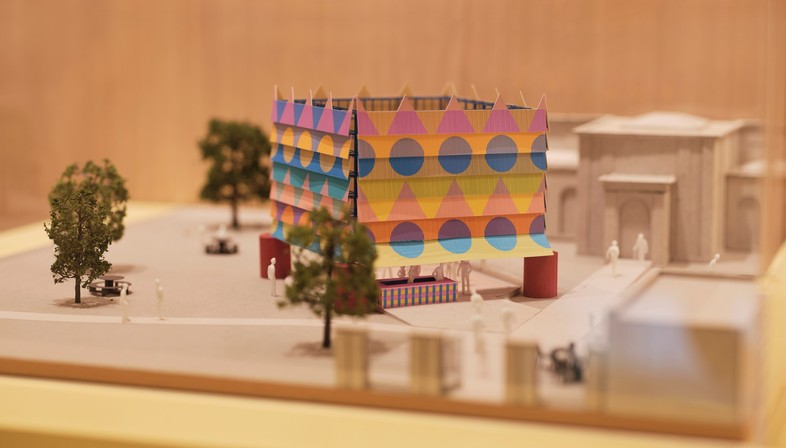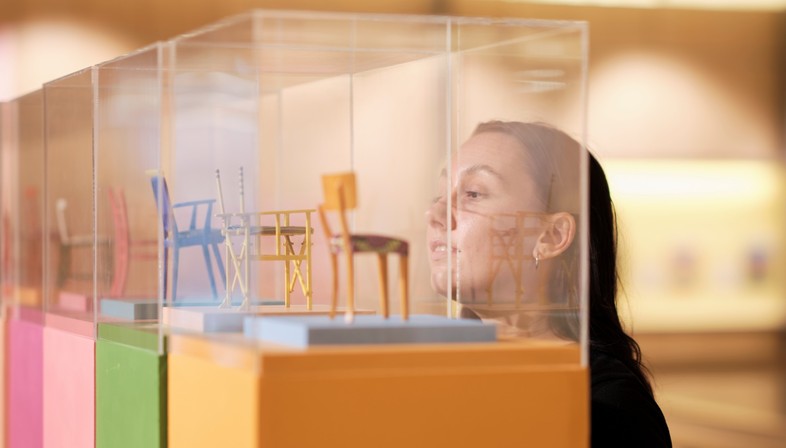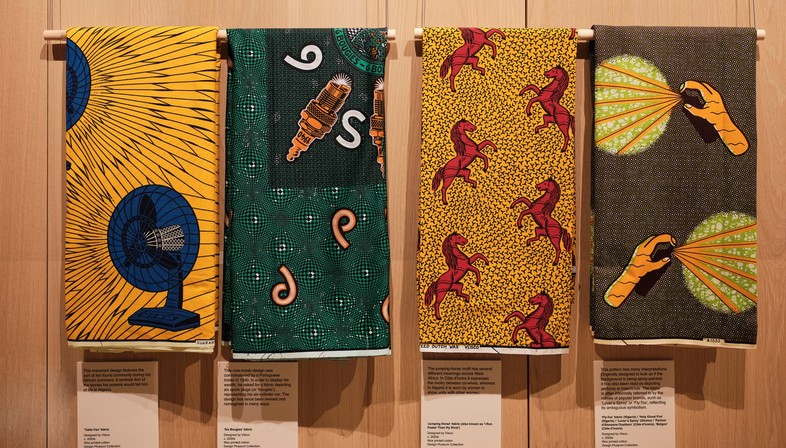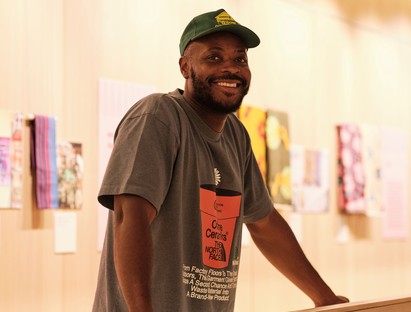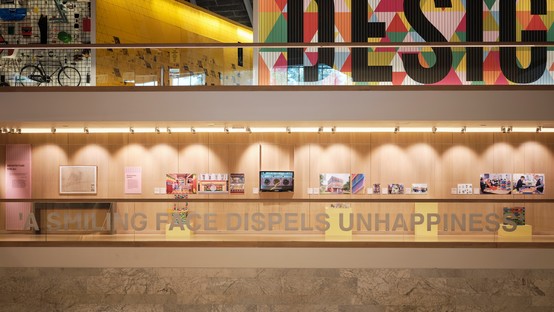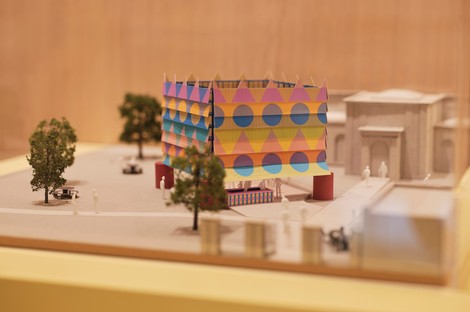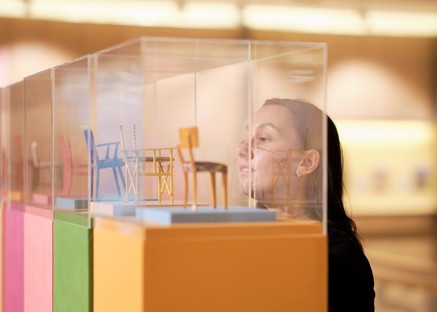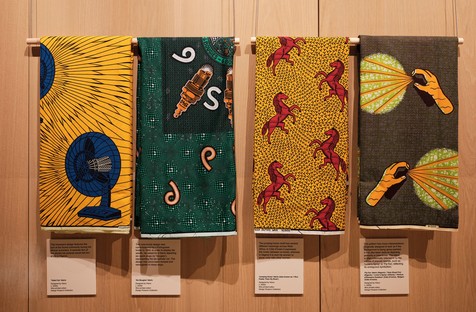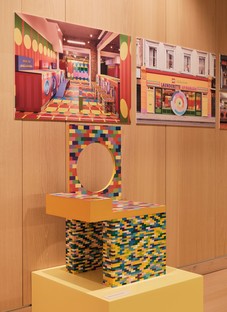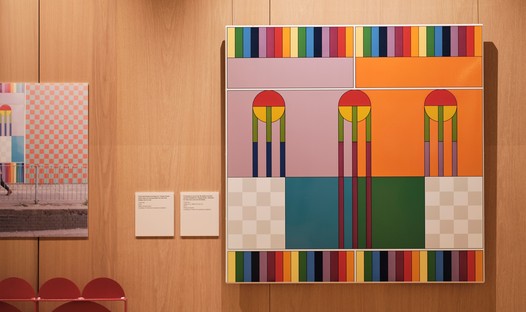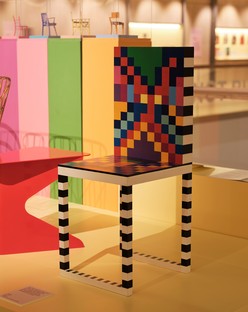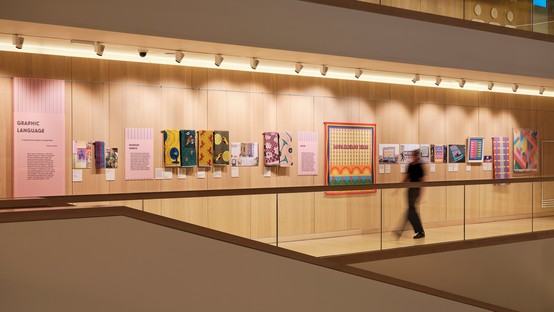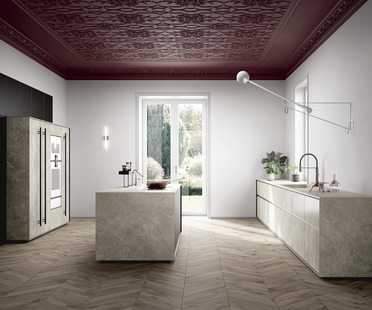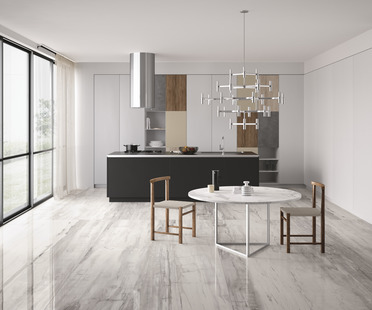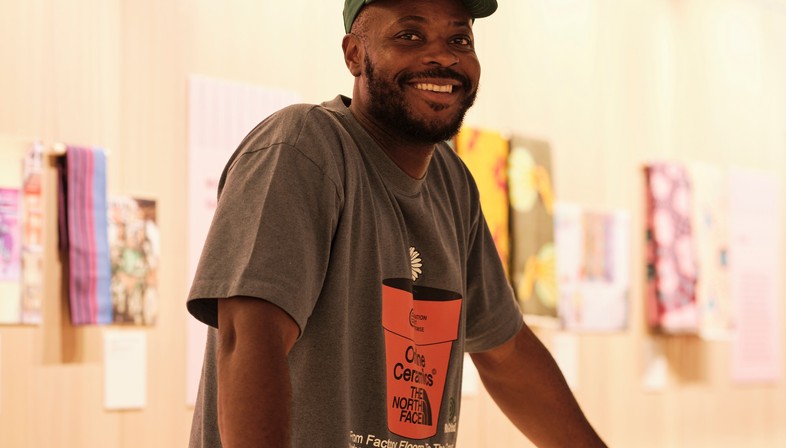
It all began with a chair. Or rather, transformation of an ordinary chair into a story that has been told, or remains to be told. This is how Anglo-Nigerian Yinka Ilori, a famous designer from the African diaspora who was born and grew up in the sprawling suburbs of London, started out in his career: transforming chairs into talking objects, colouring them, taking them apart and putting them back together, covering them with ethnic fabrics and extravagant upholstery, even giving them appendages such as candles, wooden extensions, plants and lampshades. There is a story behind every chair. “I started off sort of designing furniture, and my sort of first entry in design was designing chairs. Using chairs as a tool to tell stories,” he explains. “I think it is quite powerful because I can create a narrative, I can run away and leave this chair in the public space, and let the audience make their own interpretation of what they are looking at. Chairs are objects we use every day, but on chairs we cry, we think, we argue, we eat: it is quite a special object, a huge part of everyday life”. And now his chairs are on exhibit, along with plenty of his other works, at the London Design Museum, in a monographic exhibition entitled ‘Yinka Ilori; Parables for Happiness’.
An important recognition, considering that his career in design only recently got going (Ilori opened his own studio in 2017, though he has been designing for about 15 years). The British (and others) are truly passionate about this designer and artist who is colouring their cities – streets, buildings, shops, walls and playing fields – with his exuberant graphics featuring bold combinations of pure colours in abstract geometric shapes. Completed with high-impact phrases such as “As long as we have each other, we’ll be OK”; or “Love always wins”. It can’t have been easy for Yinka to succeed, for, as he himself says, people didn’t understand his style, at least not in the beginning. He now works with international brands in all kinds of fields, from sports to luxury goods, and on public projects such as The Flamboyance of Flamingos play area in Parsloes Park or the colourful pedestrian crossings that caused a sensation in central London during Design Week in 2021. “Everything I do is very much about playing, is playful, I think is trying to allow adults and young kids play together, still be young,” explains the designer; “sometimes design can be too serious, and I think most of what we do is about trying to create memories, because when you’re 60 or 70 years old you want to look back and remember those kinds of key moments that you share with grandkids of your children or your loved ones.”
His roots played a decisive role in forming his distinctive look, and his concept of design, which Ilori sees as a tool for aggregation and communication. “Over the years, my work has gained recognition for the strong use of colour, pattern and narrative that comes from my Nigerian heritage. However, it has often deviated from design trends and has been misunderstood. This display charts my inspirations and creative journey as I transitioned from furniture design to community-driven public installations”. In this sense, he set an example with his reinterpretation of a public launderette in London, the Launderette of Dreams in Bethnal Green Road (in collaboration with a well-known toy brand), transformed into a brightly coloured play area for children waiting for the laundry with their parents. The project was inspired by his childhood experiences (playing in the launderette on Essex Road), and aims to bring sociality and optimism back to even the dullest and most ordinary of everyday tasks.
The uniqueness of Yinka Ilori’s style and his sense of colour are profoundly affected by his Nigerian roots and his experience as a child of immigrants. “Mom and dad were coloured all the time; when you’re six or seven and you see your mom wear pink with purple, red with yellow, breaking all colour rules… but there are no rules. Build up this idea of Nigeria in your head, you had to re-puzzle the memories of your parents in your head, create a picture of what it is like; but when I went there, I was blown away, a lot of the stuff they’re telling me made sense - culture, food, language. In Nigeria when you go to a party, or to a wedding or a church service, husband and wife always wear the same fabric, so you can say “oh, they’re married”; the women wear these head ties called ‘gele’. When you wear colours you stand out, you’re different, it starts a conversation with people.”
Antonella Galli
Captions
Images of the exhibition ‘Yinka Ilori: Parables for Happiness’, at The London Design Museum until 25 June 2023. Photo credits: Felix Speller
01 The graphic motif of ‘Love Always Wins’, 2022.
02 Portrait of Yinka Ilori
03 Section of the exhibition entitled ‘A smiling face dispels unhappiness’
04 Model of ‘Colour Palace’, 2019
05 The ‘I Got Chairs for Days Series’ section of the exhibition, 2020
06 Nigerian fabrics, including ‘Table Fan’ and ‘Six Bougies’ by Vlisco 2020
07 Print of ‘Bring London Together’, a motif designed for pedestrian crossings, 2021
08 Chair and photographs from the installation ‘Laundrette Of Dreams’, 2021
09 Prototype of one of the 56 enamelled panels installed for ‘Happy Street’, 2019
10 ‘Untitled I’ chair, 2022
11 Miniature of the ‘Pele Ooooo’ chair, 2018
12 The section of the exhibition about Yinka Ilori’s ‘Graphic Language’










